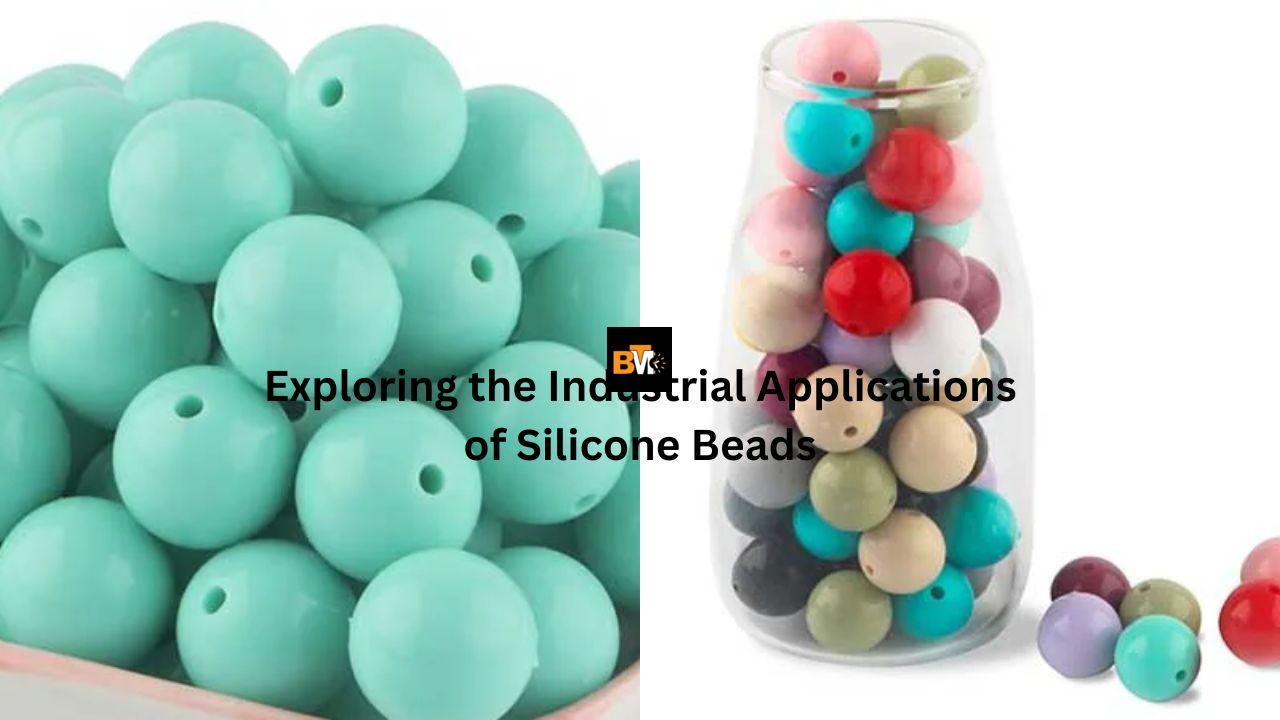Silicone beads are far more than just components for baby teething accessories or DIY crafts — they have become versatile materials across various industrial applications. With their unique combination of durability, flexibility, and non-toxic performance, silicone beads play a vital role in both consumer and B2B manufacturing sectors.
1. What Are Silicone Beads?
Silicone beads are small, molded parts made from high-quality silicone rubber. They are available in multiple shapes, hardness levels, and surface finishes, depending on the intended use. Thanks to their heat resistance, elasticity, and chemical stability, silicone beads can be used in harsh environments where plastic or metal alternatives may fail.
2. Key Industrial Applications
(1) Medical and Healthcare Equipment
Silicone beads are frequently used in medical-grade tubing systems, joint connectors, and cushioning components. Their biocompatibility and non-toxic surface make them ideal for use in medical devices, wearable sensors, and rehabilitation accessories.
(2) Automotive Industry
In automotive manufacturing, silicone beads are used for vibration damping, sealing, and insulation. Their ability to withstand extreme temperatures makes them suitable for engine compartments and electrical systems, where long-term stability is essential.
(3) Electronics and Communication Devices
Silicone beads are used as shock absorbers and insulation materials in electronics. They help protect circuit boards and connectors from vibration and thermal stress, improving overall device reliability.
(4) Industrial Machinery and Manufacturing
Factories often use silicone beads as flexible buffers, sealing plugs, or soft spacers. They resist oil, moisture, and wear — ideal for dynamic environments involving high-frequency motion or continuous operation.
(5) Household and Consumer Products
Beyond industrial use, silicone beads are also found in food-grade applications such as reusable kitchenware, bottle handles, or air valve components. Their soft touch, color variety, and safety make them a favorite in both OEM and retail markets.
3. Why Silicone Beads Are Preferred
- Excellent Heat Resistance: Operates safely between -60°C and +250°C.
- Chemical and UV Stability: Maintains integrity even after long-term exposure.
- Non-Toxic and BPA-Free: Suitable for contact with skin, food, or medical devices.
- Flexible and Customizable: Can be molded into any color, size, or shape.
These characteristics make silicone beads not just functional, but also adaptable for modern manufacturing needs.
4. The Rise of Custom Silicone Solutions
As industries move toward tailored material engineering, demand for custom Silicone Bead solutions continues to grow. Manufacturers now provide OEM/ODM customization services — from color matching and hardness adjustment to precision molding and laser engraving.
This flexibility allows designers and engineers to integrate silicone beads into specific product structures, ensuring both performance and brand differentiation.
Conclusion
From medical instruments to automotive systems and electronic devices, silicone beads have proven to be a quiet yet powerful part of modern technology. Their resilience, safety, and customizability make them a reliable material for various industrial applications.
If your business requires tailored designs or specialized material performance, consider partnering with a professional custom Silicone Bead supplier to bring your ideas into reality.From industrial machinery to wearable devices, silicone beads continue to prove their value in high-performance environments. Their resistance to temperature, moisture, and chemicals allows them to outperform traditional materials under stress. As industries emphasize safety, sustainability, and durability, silicone beads are becoming an indispensable choice for advanced engineering and product innovation worldwide.







Leave a Reply